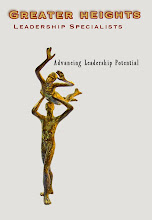With the enterprise investment landscape presenting a barren vista and business confidence diminished, the challenges of restoring our individual self-belief and of building our capacity to inject enthusiasm and energy into our organisations are colossal. And it is in such circumstances that the mettle of leadership is forged. Indeed sustaining motivation in the face of adversity is a particular distinguishing feature of leaders who accomplish long term success.
Experiencing feelings of anxiety, uncertainty and even genuine terror is entirely routine in difficult circumstances. What is not commonplace, however, is the degree to which individuals harness the potential of such unpleasant emotions to expand their individual motivational capability and amplify their capacity to move forward towards new prospects.
Our emotions are bodily and mental states that are capable of allowing us to initiate or resist change in our lives. They can be regarded as boundaries that mediate between the environment and our behavioural responses and they serve important functions in determining how we respond to the challenges we encounter daily.
From an organisational perspective, emotions can prompt specific actions through their effect on physical, mental and social processes, so that the emotional response of individuals to dramatic events can have wide ranging implications in the workplace. How we listen to and interpret the messages offered by our emotions can determine or deter our capability to achieve success. So why is it that so little attention is paid to the issue of emotion in our workplaces and why indeed is there a widespread tendency among managers and leaders to regard displays of emotion with suspicion, derision and disapproval?
